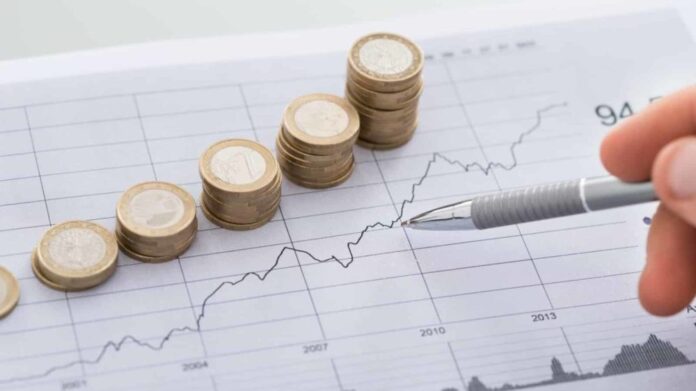KARACHI: Central banks around the world are getting aggressive with their rate cuts. With the developed world heading towards negative interest rates, Pakistan is currently sporting a 13.25pc policy rate following a cycle of monetary tightening that ended in June 2019, after which the policy rate has remained stable.
However, with international oil prices dropping drastically below expectations owing to the rampant spread of coronavirus and its impact on global economic sentiments, Pakistan is hopeful for ease in inflation. This is backed by the addressing of supply shocks that were witnessed in January.
As per the analysis of financial institutions in Pakistan, two out of twenty-four expect the policy rate to remain unchanged.
IS THIS THE RIGHT TIME FOR A CUT?
A contrarian view regarding the cut this time is that the State Bank of Pakistan did not choose to go for a rate hike while inflation was rapidly rising. A general observation regarding the SBP is that it is quick to hike but is slow when it comes to easing. Commentators feel that this strategy by the SBP is a prudent way to use the tool it has.
The SBP takes a number of factors into account while deciding the monetary policy. Umer Farooq, Economist & Investment Analyst at AKD comments, “The SBP should tread prudently considering i) the inflation outlook remains uncertain – though oil shock carries downside risk and ii) pressure on currency following carry-trade outflows.”
INFLATION
While oil prices are low, the immediate inflation outlook may be on the lower side of the spectrum, however, the outlook for oil prices is uncertain considering the political nature of the commodity. The oil shock has definitely changed outlook, but the market is still unsure as to which way the prices will settle. AKD questions the need for a cut given the delay in the monthly fuel adjustment and normalization of food prices after a mini supply shock.
With the full extent of coronavirus unknown to the markets, and the decline in oil prices further accelerated by a price war, the future dynamics are uncertain. Analysts thereby believe that the SPB should be reactive, rather than proactive in matters concerning monetary easing.
The weekly SPI Inflation numbers have been released by the PBS for the week ended 12th March 2020. The SPI increased by 0.71pc. Out of the 51 items in the basket, the average price of 14 items increased, while the prices of 9 items decreased.
As per Naushad Chamdia, CEO of Standard Capital Securities, “We expect a fall in inflation from 12.4pc to anywhere between 9.9pc-10.3pc in March.”
He further comments, “This fall will drag inflation below its YTD Moving average of 11.5 for this month.”
Speaking on policy rate expectations, he notes, “Keeping our CPI expectation in mind, we feel some 200bps spread is necessary for this policy rate at least.”
FOREIGN OUTFLOWS
With a dollar liquidity shortage around the world, hedge funds are on a selling spree that has not spared gold either.
Keeping that in mind, more dollar outflows are expected in the fourth quarter of this fiscal year. However, as per Saad Hashmi, Executive Director Research & Business Development at BMA Capital, “The outflow is not a local issue, it has more to do with the selling spree international funds are undertaking for liquidity. Considering that, and recovery of the PKR today, it is expected the hot money outflow will not be a deterring factor preventing the SBP from a cut.”
The outflows of dollars and the value of rupee is a concern for the SBP considering how insider sources reveal that the central bank intervened in the foreign exchange market by selling dollars.
The SBP intervened at 4pm on Friday to bring the dollar down to Rs157.25 by pumping liquidity.
ARGUMENTS FOR A CUT
However, if we look on the other side, AHL expects a 100bps slash in policy rates, exceeding the modal expectations of the market. While speaking to profit, the AHL team commented, “The expectation is in line with lower inflation, downturn in the global commodity and equity markets, and the fear of a global recession.”
They further comment, “The cut is necessary to mitigate the risk due to coronavirus. Considering global monetary easing, thus the rising rate differentials.”
Hashmi commented on the global trend of cuts in order to bolster demand in the wake of dampened sentiments due to coronavirus. He believes that the SBP will follow in order to prop up consumption sentiments in the economy.
PRESSURE ON SBP
Prime Minister Imran Khan had said on Wednesday that as inflation was coming down, interest rate would also come down and people would easily opt for loans for housing.
Textile millers and economic experts on Tuesday had urged the government to reduce the interest rate, currently at 13.25pc, to a single digit.
“We [Pakistan] need an emergency reduction in interest rates…world interest rates are headed to zero or negative and we must also bring it to a single-digit immediately,” said APTMA Punjab Vice-Chairman Aamir Sheikh.
Acclaimed Economist and Professor at the Institute of Business Administration, Dr. Adnan Haider notes, “After observing some recent updates (mostly favorable), I am predicting a cut (most likely, 100 to 150bps) this time. Inflation forecast is also revised (11.54pc for FY2020).”
Economist Dr Qais Aslam said that 13.25pc interest rate by SBP was set in a bid to attract ‘hot money’ by speculators from abroad who get loans where the interest rate is 1.5pc and get a pure profit of 12pc.
“Also, the fear is that if they take out all their money at once, the economy will go bankrupt. It is advisable to bring these interest rates to 8pc so that local investors can decrease their cost of doing business and the real economy might pick up and so would our GDP growth,” he said.




